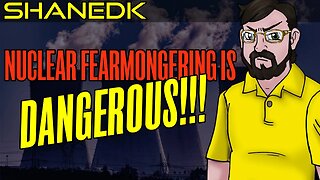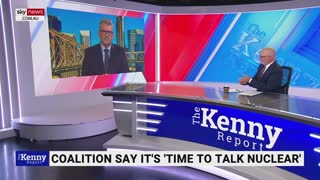The Economics of Nuclear Power: A Closer Look
💠 Investment in renewable energy totaled $273 billion in 2018, bringing the total amount invested to $2.3 trillion. With nuclear power providing 61% of its electricity, France emits only 32 grams of carbon dioxide per kilowatt-hour. Germany, a nation that has spent billions on wind energy, is replacing all of its nuclear power facilities with natural gas plants. It makes obvious sense why others support nuclear energy over renewables. Building a nuclear power station with a capacity of 1,000 megawatts would cost $6 billion.
Building a natural gas-powered plant would cost only $920 per kilowatt. Each full block unit represents $5.6 million; blocks can be partially filled to represent smaller fractions. If they both run for an hour, they will each generate 1,000 megawatt hours of energy. Because the energy market is complex, it is not easy to calculate the revenue from this number. Nuclear power has one major advantage: its fuel is relatively inexpensive simply by virtue of needing much less of it than natural gas does. Before even talking about the safety concerns, nuclear energy just becomes a tremendously tough investment to justify over time, leading to an even larger run into the negative before income begins.
Thanks and Enjoy 🔥 🔥
🎥 #Nuclear #Energy #Economics
▌│█║▌║▌║▌║▌║█│▌
-
 0:46
0:46
ProfHayes
1 year agoCan nuclear be economical?
31 -
 54:42
54:42
Bold Brave TV
1 year agoThe KJ Show #46 - Nuclear Energy: Coming to a Small Town Near You
-
 33:26
33:26
Heresy Financial
3 years agoNuclear Energy is the Future (and a TREMENDOUS investing opportunity)
7 -
 8:56
8:56
Shane Killian
1 year agoNuclear Fearmongering Is DANGEROUS!!!
12 -
 0:48
0:48
ProfHayes
10 months agoPolitics in nuclear energy?
17 -
 8:13
8:13
New Australia Movement
1 year agoEnergy And Climate Part 6. Nuclear Is Superior
4 -
 40:22
40:22
Sideline Sanity with Michele Tafoya
1 year agoNuclear Energy and its place in America
13 -
 2:43
2:43
ProfHayes
11 months agoWhy is nuclear energy so expensive?
19 -
 1:57
1:57
Life Code Lab
1 year agoREDUCING OUT OF CONTROL ELECTRICITY PRICES! -Prevention of Energy Crisis with Nuclear Power
5 -
 4:01
4:01
roniweg9m
1 year agoNuclear energy is a ‘pretty straightforward’ alternative to cheaper energy_ Keith Pitt
6.05K